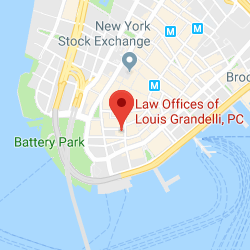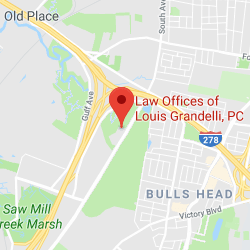
Do Rideshare Insurance Policies Intentionally Stiff Injured New York City Residents?
Rideshare insurance policies have been the focal point of much debate, specifically around liability for injured passengers. In January of 2019, Velma Mitchell was struck and seriously injured by an Uber while crossing the street in the Upper Bronx, New York. Mitchell, who had the right of way, was stepping off the curb and into the crosswalk when a large SUV being operated as a rideshare vehicle made a left turn into the intersection and hit her. She suffered a fractured ankle from the accident and had to undergo surgery the same day to implant nine screws had to be installed in her foot. For the next week, she was confined to a hospital bed as she attempted to recover from the traumatic incident. Mitchell was left disabled, jobless, and nearly evicted because of her inability to provide for herself. Despite the severity of her injuries and the clear liability on the part of the SUV, the car’s insurance refused to offer her reasonable compensation.
While thousands of rideshare trips are taken by passengers daily in New York City, the increase in motor vehicle traffic resulting from their abundant usage has led to increased congestion and accidents. To make matters worse, New York City rideshare drivers are only required to maintain a modest $100,000 in liability insurance by the Taxi & Limousine Commission (TLC), which often does not provide adequate compensation to the victims of accidents involving those vehicles, whether they be passengers, pedestrians or the operators of the other vehicles involved in the accidents. Indeed, this means that no matter how serious someone’s injuries are in an accident, the maximum compensation they can expect to recover through insurance is $100,000. In Mitchell’s case, her medical bills combined with loss wages far exceeded this limit. This is in contrast to the New York State law which requires rideshare drivers logged into Uber and Lyft apps to carry $75,000 in insurance coverage, and $1,250,000.00 in insurance coverage once a passenger has been picked up. Inexplicably, the State law exempts New York City from this requirement.
Uber and Lyft attest that their drivers are independent contractors. Therefore, the company does not have the same liability for injured passengers.
When large app-based taxi companies such as Uber and Lyft are sued after accidents, they attest that their drivers are independent contractors, not employees. Therefore, their argument is that the company does not have the same liability for injured passengers. Halina Radchenko, President of the New York State Trial Lawyers Association, is an avid advocate for higher insurance policy requirements for rideshare taxis within New York City limits. “There’s no reason why people in the five boroughs should be afforded less protection than people outside of the five boroughs,” said Radchenko, “There should not be a discrepancy like this in the law.” Recently, Mayor Bill DeBlasio expressed concern about this gap between insurance requirements, and agreed that something had to be done. Regardless, there is still a long way to go before this discrepancy can be bridged. The best way to receive compensation for all expenses in an accident is to hire a proven injury attorney.
Since 1992, the Grandelli Law firm has been firmly committed to receiving the maximum compensation under the law for injured clients. We have secured numerous multimillion-dollar verdicts and settlements for individuals involved in car accidents. If you or a loved one has been injured in a car accident as result of someone’s negligence, please contact our office for a free consultation.



















